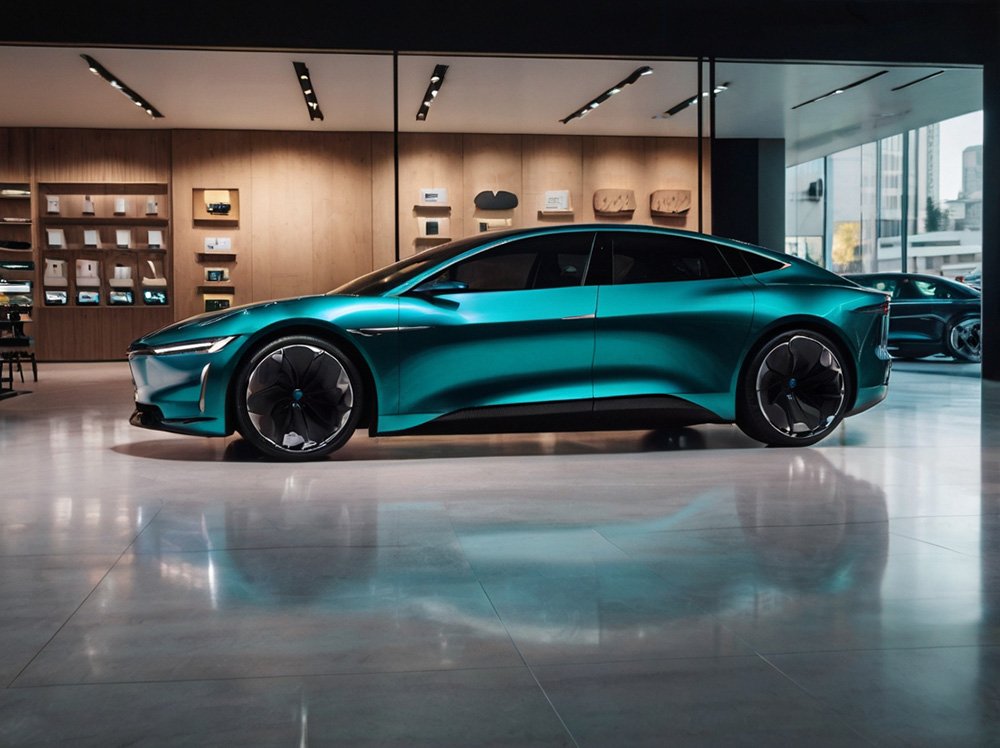
The electric vehicle EV market is booming, with car companies big and small all trying to get a piece of the action. But what if a company famous for smartphones and smart devices decided to join the EV race?
That company is Xiaomi, a Chinese tech giant known for its innovative gadgets. They’re taking their expertise and applying it to the EV market with ambitious plans that could change the game. And guess what? They’re building a competitive EV that’s getting rave reviews and costs less than $30,000!
Xiaomi’s Disruptive Entry into the EV Market: A Thorn in the Side of Legacy Automakers
Xiaomi, the Chinese tech giant known for its smartphones and consumer electronics, has made a bold and unexpected move into the electric vehicle (EV) market with the launch of its SU7 model. This new entry into the EV market represents a significant challenge to the offerings from legacy automakers.
The Xiaomi SU7 has caught the industry by surprise, not only for its sleek and eye-catching design, but also for the innovative features and technology it brings to the table. Drawing inspiration from established players like Porsche, the SU7 still manages to carve out its own distinctive identity, showcasing Xiaomi’s design prowess and attention to detail.
Technology That Can’t Be Matched by Legacy Auto
The SU7’s real standout feature is the technology that sets it apart from traditional car companies.
Xiaomi, known for its tech expertise, has created a truly innovative vehicle. It boasts a large, responsive touchscreen infotainment system, just like Tesla. But Xiaomi goes a step further by seamlessly connecting this system to their smart home ecosystem.
This level of tech integration is a big difference from the more traditional approach of established carmakers, who have sometimes been slow to adapt to the fast-changing EV market.
More Tech, More Performance and a Lower Price
In addition to its advanced technology, Xiaomi has also managed to price the SU7 very competitively. They have undercut the competition in the Chinese market.
The SU7 has a starting price under $30,000 USD, yet it offers high-end features and performance. This remarkably competitive price point is a key advantage for the vehicle.
This strategic pricing, combined with Xiaomi’s strong brand recognition and loyal customer base, could pose a significant threat to the market share of established players. This is especially true in the lucrative Chinese EV market.
- A Tesla-esque infotainment system: The SU7 boasts a large touchscreen with voice control capabilities and a robust app ecosystem that integrates seamlessly with Xiaomi’s smart home devices.
- Advanced autonomous driving capabilities: While not yet fully implemented, the SU7 is equipped with hardware for future Level 4 autonomous driving capabilities.
A Leader In Innovative Manufacturing
Xiaomi’s innovative manufacturing processes give it disruptive potential in the EV market. A key example is the company’s use of large-scale die casting technology.
This advanced casting technology has allowed Xiaomi to significantly streamline its production process. The benefits include:
- Reduced production time
- A lighter and more durable component
- Improved noise reduction
How has the SU7 been received?
The reception to the SU7 has been very positive, with early reviews praising its performance, range, and technology. It received over 80,000 pre-orders within the first 24 hours, and Xiaomi aims to deliver over 100,000 units in 2024. This strong demand shows there is a clear interest in innovative, tech-driven EVs that provide great value.
Legacy automakers now face a serious competitor in Xiaomi, which could disrupt the traditional automotive market and force established brands to rethink their strategies.
The Xiaomi SU7 isn’t just another EV; it signals a major shift in the industry that could have lasting effects on long-standing players. As Xiaomi pushes the limits of what’s possible in electric vehicles, traditional automakers must act quickly to keep up or risk falling behind.
Xiaomi’s EV Ambitions
- Xiaomi’s EV Strategy: Xiaomi has established a dedicated EV division with a clear vision to develop and manufacture electric vehicles. The company is aggressively investing in research and development to build a portfolio of EVs that are both technologically advanced and consumer-friendly.
- Smart EV Ecosystem: Xiaomi’s expertise in smart devices and technology is expected to translate into a comprehensive EV ecosystem. This could include features like:
- Smart Connectivity: Seamless integration with smartphones and smart homes for a connected driving experience.
- Advanced Driver-Assistance Systems (ADAS): Advanced safety features and self-driving capabilities.
- Over-the-Air Updates: Regular software updates to enhance the vehicle’s performance and features.
- Building a Global Presence: Xiaomi plans to launch its EVs in China. Which is now the Worlds largest car market and EV market with about 26 million new cars registered in 2023 which is almost as large as the US and European car markets combined. This means that Xiaomi doesn’t really need to sell it’s cars outside of China to be a successful automaker.
Potential Advantages for Xiaomi
- Existing Technology: Xiaomi has a strong foundation in software, hardware, and manufacturing, giving it an edge in developing and producing EVs. They have a proven track record in developing cutting-edge technologies and scaling up production quickly.
- Brand Recognition: Xiaomi has a strong brand presence worldwide, known for its affordable and innovative products. This brand recognition could translate into customer loyalty for Xiaomi’s EVs.
- Smart Ecosystem Integration: Xiaomi’s strong ecosystem of smart devices and services can enhance the EV experience. Imagine controlling your vehicle’s climate, charging status, and even navigation through your smartphone.
Challenges for Xiaomi in the EV Market
- Competition: The EV market is highly competitive with established automakers and numerous startups vying for market share.
- Regulatory Hurdles: Navigating the complex regulatory landscape for EVs can be challenging.
- Battery Supply: Securing a reliable and affordable supply of batteries for its EVs will be a key challenge.
Conclusion:
Xiaomi’s foray into the electric vehicle market is a bold move that could disrupt the industry. The company has the potential to leverage its technological expertise and brand recognition to create a compelling EV offering. While the road ahead is not without challenges, Xiaomi’s commitment to innovation and its established track record in the tech sector make it a name worth watching in the EV space.
What are your thoughts on Xiaomi’s EV ambitions? Do you think they have the potential to succeed in the competitive EV market? Share your insights in the comments!
Discover more from Renewable Riches
Subscribe to get the latest posts sent to your email.



